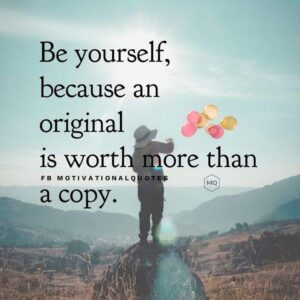《自律養生實踐家之旅383》 勇敢尋找自己的人

許多戴眼鏡的人,都有過這樣的經驗。某一刻驚覺眼鏡不在鼻樑上,於是滿屋子翻找,急得像熱鍋上的螞蟻,最後才發現,它正安穩的掛在自己的眼前。
你或許也曾焦急的找過鑰匙或手機,鑰匙其實就在包裡,手機其實掉在車上。那份慌亂,其實正是人生的縮影。
擁有生命,就擁有自癒的力量;擁有身體,就具備維持最佳狀態的能力。
然而,我們幾乎一生都在往外尋找療癒,期待靠外力恢復健康,靠專業獲得平靜。我們少有機會相信,真正的解答,其實一直都在自己身上。
我時常回想「迷途知返」的歷程,從小被送進學校求學,竟是迷路的起點。一路上為了考試、為了不讓父母丟臉而拚命向前。
多少人夢寐以求的「醫學窄門」,竟成為誤解健康的入口。這是我半世紀以來的觀察與體悟,學醫的人,往往最不了解病人為何會生病。
在我的人生旅途中,「求學」與「求知」被劃成了兩半。前半段並不真實,因為那不是我想要的,而是別人要我學、要我懂的。
我從小被要求學鋼琴與小提琴,後者沒多久就放棄了,前者則練到一定程度。直到面臨大學考試,習琴之路也因此被擱下。
學歷重要嗎?我的本能會立刻回答「不重要」,但在現實社會裡,我們仍會對高學歷者多幾分尊重。
然而,高學歷不等於高收入,不等於高智慧,更不等於高靈性。在我的觀察中,高學歷與高智慧、高靈性的關係,甚至呈現反向的走勢。
我希望下一代擁有好品格,而不是高學歷或好工作。這樣的價值觀早已鑲嵌在我的人生信念裡,所以我從不在意孩子的成績,也不在意他們是否進入名校。
誠然,愛面子的我也曾在別人面前糾結孩子的學經歷;但當生命閱歷累積到某個程度,我深信「兒孫自有兒孫福」。
期待有一天,我們都能真正相信生命的公平,因相信因果而不委屈,因理解必然而不害怕。
每個人都有屬於自己的生命軌跡:最想做的事、最想成為的樣子。只是,我們並不一定都能遇見那條命定的路。
父母原本期待的那個「我」早已不存在,而我童年對未來的想像,也成了泡影。幸運的是,我終於遇見了真實的自己,我經常記錄自己與靈性之間的默契,有時也記錄與身體之間的對話。
那是一種從腸道通往大腦的靈動感應;隨著年齡增長,這種感知愈發精確。
在人類的疾病藍圖裡,我愈來愈清楚看見:我們普遍低估了壓力,也輕視了創傷,我最常在觀察紀錄中寫下的一個病根,竟是傲慢。
傲慢是最無形的疾病,當事人幾乎不會承認,也難以意識到這種態度對身體的破壞力。
傲慢讓人遠離命定,也讓人遠離真實的自己,而「找回自己」,才是健康的起點。
我無法將斷食與身體感官分開看待,乾淨的身體,會回應清晰的訊息;暢通的身體,會迎來正向的思考。
腸道與大腦的連結存在神奇的提示,我們可以在英文的Gut Feeling發現直覺和勇氣的關聯,或許在人類的紛亂世界中,找到自己確實是需要勇氣的行動。
在我的工作紀錄裡,斷食與「遇見自己」幾乎總是並行的,不是前者帶來後者,就是後者喚醒前者。
能夠幫助一個人找到自己,是一件深具意義的事;能夠聚集一群與自己同頻的人,更是一件無比珍貴的事。
正念會引領我們走向自律,而自律也終將遇見正念。這,就是愛自己的基本行動。
當養生進階為養心,養心也能反過來照亮養生。
若你真心渴望找到自己,你必定會對身體的意識感到好奇,你也一定願意,誠實的與自己的身體待在一起。
尋找自己,需要勇氣。
(做你自己,因為原版永遠比複製品更有價值。)
Those Who Courageously Seek Themselves
Many people who wear glasses have shared a similar experience:
one moment they realize their glasses are missing from their nose,
so they search frantically around the house —
only to discover that the glasses were quietly resting right in front of their eyes all along.
You might have also searched anxiously for your keys or your phone —
the keys were in your bag, the phone had slipped onto the car seat.
That moment of panic is, in fact, a perfect metaphor for life itself.
To have life is to possess the power to heal.
To have a body is to hold the innate ability to stay in its best condition.
Yet most of us spend a lifetime seeking healing from the outside —
hoping that external forces will restore our health,
that professional knowledge will bring us peace.
Rarely do we believe that the real answer has been within us all along.
I often reflect on my own journey of “losing the way and finding it again.”
Being sent to school as a child was, in hindsight, the beginning of my detour.
I studied hard for exams, striving not to shame my parents.
Many dream of entering the narrow gate of medical school —
ironically, that was where the misunderstanding of health began.
After half a century of observation and experience,
I have come to see that those who study medicine often understand the least about why people fall ill.
In my life’s journey, “education” and “knowledge” have long been split apart.
The first half was not genuine — it was filled with things others wanted me to learn, not what I truly wished to know.
As a child, I was told to learn piano and violin.
I soon gave up the violin, but practiced piano for years until college entrance exams forced me to stop.
Is education truly important?
My instinct says no —
yet in society, we still give extra respect to those with higher degrees.
But a high education does not guarantee high income,
nor high wisdom,
nor a higher spiritual state.
From my observation, the relationship between academic achievement and true wisdom often moves in opposite directions.
I hope my children grow up to have good character,
more than good jobs or prestigious degrees.
This value is deeply embedded in my worldview —
which is why I’ve never cared about their test scores or the schools they attended.
Admittedly, my pride once tangled with thoughts about their education,
but as life experience accumulated, I came to believe:
“Every generation carries its own fortune.”
I hope one day we will all believe in life’s fairness —
to feel no resentment because we trust cause and effect,
to feel no fear because we understand necessity.
Each of us has our own life trajectory —
the things we long to do,
the kind of person we wish to become.
But not everyone meets the path that was destined for them.
The person my parents once hoped I would become no longer exists;
the image I once had of my own future has long dissolved.
Fortunately, I met my true self.
I often record the silent dialogues between my spirit and myself —
sometimes between my mind and my body.
There is a kind of subtle communication that flows from the gut to the brain,
and with age, this perception has only become sharper.
In the grand map of human disease, I’ve come to see clearly:
we underestimate stress and overlook trauma.
And in my long observation, the most common root of illness is arrogance.
Arrogance is the most invisible disease.
Few acknowledge it,
and fewer realize how destructive it can be to the body.
It distances us from our destiny,
and even further from our true selves.
To find oneself again — that is the beginning of genuine health.
I cannot separate fasting from bodily awareness.
A clean body transmits clear signals;
an unobstructed body invites positive thoughts.
The gut-brain connection offers mystical hints —
even the English phrase “gut feeling” reveals the link between intuition and courage.
Perhaps, in this chaotic human world,
finding oneself is indeed an act of courage.
In my work, fasting and self-discovery almost always appear together —
either one leads to the other,
or one awakens the other.
To help someone find themselves is profoundly meaningful;
to gather a group of people who are at peace with themselves is infinitely precious.
Mindfulness will eventually lead to discipline,
and discipline will one day meet mindfulness —
that, to me, is the simplest expression of self-love.
When caring for the body evolves into caring for the heart,
the heart in turn will illuminate the body.
If you truly wish to find yourself,
you will inevitably grow curious about the consciousness of your body,
and you will willingly choose to stay —
honestly, quietly — with it.
To seek oneself is to be brave.


